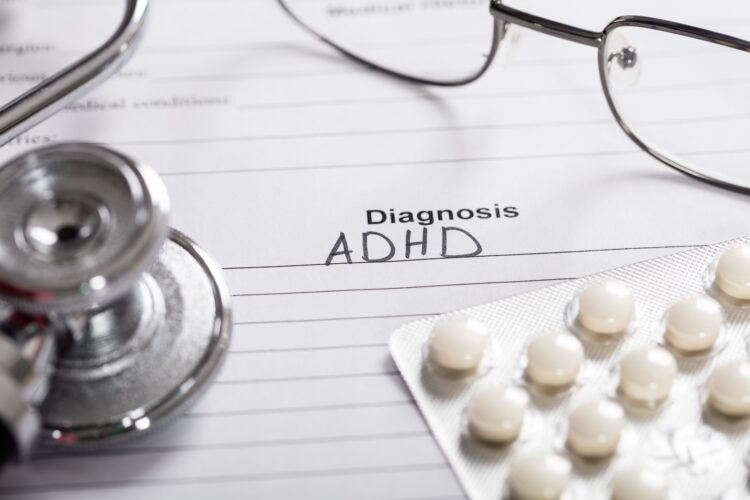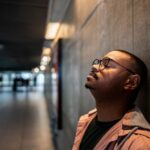Many people have heard of attention deficit hyperactivity disorder (ADHD), but they may not fully understand it. This is why October is designated as ADHD Awareness Month. At Highland Hospital Behavioral Health in Charleston, West Virginia, we treat children, adolescents, and adults who are struggling with their mental health, and we want to raise awareness of this condition, which often occurs alongside other mental illnesses.
Types of ADHD
It is not uncommon for people with ADHD to suffer without a diagnosis. This may be because most people associate ADHD with hyperactivity and impulsiveness, making it difficult for teachers, parents, and friends to recognize less obvious forms of ADHD. Knowing the different types of ADHD may make it easier for people to spot a person who is struggling:
- Hyperactive-Impulsive Type
- Squirming/fidgeting
- Running or climbing at inappropriate times/in inappropriate places
- Struggling to be quiet
- Interrupting to blurt out information
- Moving non-stop
- Inattentive Type
- Making mistakes due to missing details
- Inability to listen
- Unable to understand or follow directions
- Avoidance of effort-intensive tasks
- Forgetful
- Misplaces or forgets things
- Combined Type
- Has features of both of the types above
Boys Versus Girls
Initially, it was believed that ADHD was primarily a problem for boys. Over time, we have come to understand that girls and women are largely underdiagnosed with this problem, because they are more likely to have the inattentive type.
Common ADHD Myths
A lot of people believe things about ADHD that are simply not true. Some of the most common myths are:
- ADHD is not real – there are references to ADHD going back to 1775, and more than 100,000 articles have been published about it in scientific journals.
- The meds given for ADHD are addictive – using stimulant medications to treat ADHD may actually prevent addiction by helping people manage the condition appropriately.
- ADHD is a sign of bad parenting – Environment, genetics, and medical conditions are contributing factors to this condition. Parenting does not cause it or prevent it. It’s also not caused by eating too much sugar or watching too much television.
- People don’t have ADHD; they’re just lazy – People with ADHD have a difference in the chemicals and communication pathways inside their brains. It’s not something they can control.
- ADHD is something people grow out of – Some people do grow out of ADHD, at least partially. But around 50-86 percent of people with this condition continue to have significant symptoms in adulthood. Many people experience general improvement of symptoms but may have worsening ADHD during times in their life when they are under more stress and pressure.
- Kids with ADHD just need more discipline – Most young people with ADHD don’t break rules out of defiance; they either forget rules, don’t understand them, or neglect them in the heat of an impulsive moment.
- Everyone has a little ADHD – ADHD is a brain difference some people experience. It’s more than just being a little forgetful or distracted sometimes. For people with ADHD, forgetfulness, distractibility, impulsivity, and inability to focus are intense, severe, persistent problems. Only 5 percent of the population experience these issues at a level that is problematic enough to be considered a disorder.
How ADHD is Diagnosed
For a person to receive an ADHD diagnosis, they must show a certain number of related issues, which might include:
- Symptoms in two or more settings
- Symptoms that interfere with how they are able to function within those settings
- No better explanation is available for why they are having these issues
- Symptoms manifest at times when they are not also experiencing another mental health condition
How ADHD is Treated
Most patients do best when they are given a combination of therapy and medications to address ADHD. There are also support groups for people with ADHD, and ADHD-specific coaching can be helpful for building time management, organization, socialization, and listening skills. Healthy lifestyle choices can also make the condition more manageable:
- Eating a well-balanced diet
- Staying physically active
- Limiting screen time in favor of getting outside
- Getting the age-appropriate amount of sleep every night
Ways Parents Can Help
Parents whose children have been diagnosed with ADHD can help their child be more successful by:
- Helping the child learn to make lists of tasks they need to complete
- Breaking down any jobs the child needs to do into smaller, less intimidating pieces
- Assisting the child with organization
- Reducing noise and distractions from electronics and other sources
- Rewarding children for meeting their goals
- Advocating that the child be seated away from windows and receive academic accommodations in school
At Highland Hospital Behavioral Health, we want all of our guests and their loved ones to have the most accurate information possible about mental health, so they can make informed healthcare decisions.






